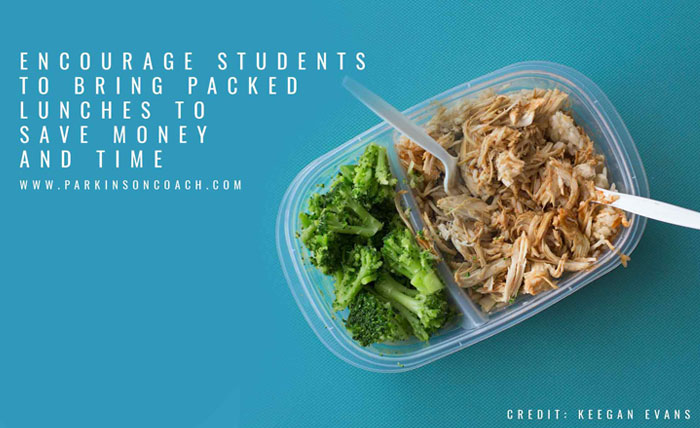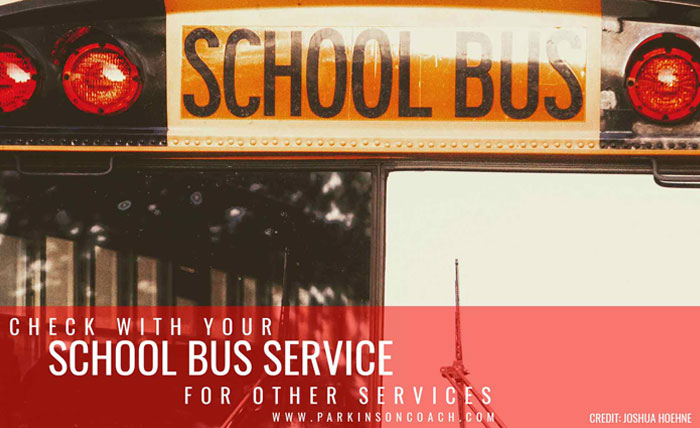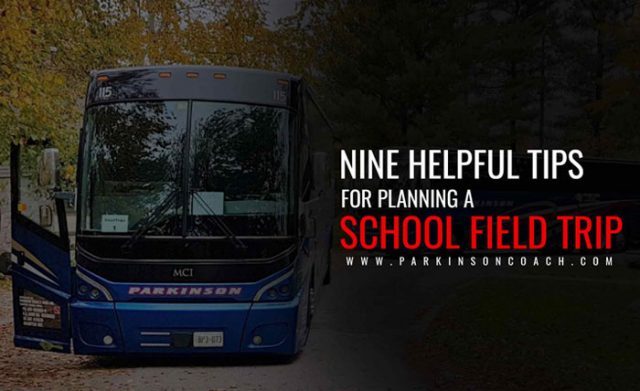Field trips are a great tool in a teacher’s kit; they let you get the kids out of the classroom and give them some hands-on learning. However, organizing any outing — whether a bus tour or a field trip — takes a bit of work. There’s plenty of preparatory work involved in planning a trip, including completing all the necessary permits, securing permission forms, and arranging transportation.
There are plenty of opportunities to learn outside the classroom, and hiring a professional school bus or coach rental company can better guarantee an on-time, successful event. Here are some helpful tips for organizing a successful school field trip for your students and give them the opportunity for some practical learning.
- Start early – Getting all the approvals for a field trip can take a great deal of time. Plan your trip well in advance of the date. Not only will this reduce stress, but advance planning may help you save money in your budget. For simpler day trips, starting six weeks in advance is a good rule of thumb; for overnight or out-of-province trips you may need to start planning a year early. Nailing down the travel plans early will also allow you to spend more time working out daily schedules.
- Screen the site – There are many good options for school field trips in and around Toronto. Once you have settled on yours, find time to visit your chosen venue before finalizing your plans. Many locations allow teachers to visit free of charge. Pay attention to the environment when brainstorming potential activities and routes through the venue. When possible, arrange a call with the staff and ask questions to lay the groundwork for your excursion. If your students have special medical needs or allergies, inform the venue’s staff. More practically, make an effort to map out the locations of washrooms and emergency exits in case they’re needed.
- Be hands-on – Field trips are a golden opportunity to get kids to experience things hands-on that they otherwise might only learn through books. For example, there are several historical sites in Toronto, like Black Creek Pioneer Village or Todmorden Mills Heritage Site where students can learn how people lived hundreds of years ago–a perfect way to reinforce what they learned in their history classes in school. Such venues often have special rates for schools, making it easier to book tours and activities.
- Keep costs down – Field trips can be expensive. It’s vital that costs be kept as low as possible to give each of your students the opportunity to attend. Try timing the trip for a venue’s off-season, when entry fees may be lower. Ask about group rates. Book the site and transportation yourself. Consider organizing a fundraiser to defray some of the costs, or ask families to pay in installments to make payment easier. If the trip is a particularly costly outing, you can ask for outside support in the form of private donors and local companies.
- Choose your chaperones – Consider asking parents to volunteer as chaperones for the trip. Send letters home with your students asking for volunteers. When possible, have a list of backup volunteers in case of last-minute cancellations. Prep your chaperones thoroughly and educate them on their responsibilities (regardless of how common sense they might seem). Provide chaperones with useful tools (like daily schedules, name tags, emergency contact information) to make their jobs easier. If your school requires a police background check for volunteers, please ensure parents have filed the paperwork before they join you.
- Pre-inform students and parents – Use the lead time between announcing your trip and the departure date to lay down ground rules and expectations for the students. If the trip is to an outdoor site, remind students to dress appropriately. For older students, tie the trip into lessons in class to provide context; show a brief video on the venue, if possible. Give the class activities or exercises to use during or after the trip; if you have any specific materials for activities, inform your class now. Let the students’ parents know what the plans and expectations for the trip are, so that they can also plan accordingly.
- Make a schedule – It’s important to have a defined schedule so students know what they should be doing at all times. Plan a detailed itinerary for the trip; include all activities, and allot sufficient time for each. Consider the age and attention span of the kids when making your plan. Consider a variety of activities to accommodate different interests and ensure everyone learns something from the trip. Consider including some “unplanned time” for the kids to blow off steam. Be clear about the time they should be back, and keep everyone nearby to make supervision easier.
- Decide on food plan – Decide in advance where, when, and how your party will eat at the site. Your easiest option might be to have kids bring their own lunches and snacks. This can help you save on budget, help you avoid wait times while on-site food is prepared, and maximize your on-site time for learning. The facility may have an on-site dining area. If they do, you may be able to negotiate a special lower rate in exchange for a more limited menu. If you’ve made arrangements in advance, the food can be ready for you at a designated time.
- Arrange transportation – Consider how you plan on getting to the venue. In case of large groups, renting a bus is a convenient means of securing transportation. Fill out all the required forms so the bus service can secure your reservation. Communicate the right pick up times and addresses at the time of your booking, and on site with your driver. It’s important the rental company knows all your details so they can provide excellent service and get you to your destinations on time.






Field trips are a great way to expose students to different ways of learning. However, there is plenty of groundwork that needs to be laid to make any school field trip successful. Think about the chaperones, activities, and ground rules to get your class as ready for the trip as possible. Part of the successful field trip experience is having safe, reliable transportation. Give Parkinson Coach Lines call for your bus needs.
Parkinson Coach Lines prides ourselves on offering clients safe, comfortable travel within Ontario. If you’re looking for transportation or tours across the Greater Toronto Area, then look no farther. We offer a wide variety of services from charter and school bus rental to bus tours. We even offer single- and multi-day trips across North America. At Parkinson Coach Lines, our drivers are excellently trained and our fleet well-maintained. Call us at (905) 451-4776 or (905) 451-5499 to reserve one of our buses.







